- Calls to this hotline are currently being directed to Within Health, Fay or Eating Disorder Solutions
- Representatives are standing by 24/7 to help answer your questions
- All calls are confidential and HIPAA compliant
- There is no obligation or cost to call
- Eating Disorder Hope does not receive any commissions or fees dependent upon which provider you select
- Additional treatment providers are located on our directory or samhsa.gov
Elite Athletes and Anorexia Nervosa: What Coaches, Trainers, Administrators & Parents Need to Know

Symptoms of Eating Disorders in Athletes
Frequently, an athlete with anorexia will struggle with a combination of restrictive dieting, overtraining, seeking rest in recovery days. They also often miss out on social activities, work, and school activities to fit in their training sessions. So, how does someone learn about Eating Disorders in Athletes?
They may have issues with having any flexibility around food and exercise, which often leads them to limit their food. They may have food rules such as only allowing themselves to eat if they’ve worked out that day or restricting their food intake on rest days. They may also have patterns of compensation when they do eat.
They may compare their eating habits or athletic ability against their teammates, opponents, or even sometimes just themselves. They are also often very critical of body weight and composition.
For example, an athlete that is a really hard worker or high achiever that begins to restrict food by skipping meals or team gatherings. They may also become secretive about their workouts.
Athletes with anorexia often have an intense fear that, if they skip a workout, they will immediately lose the body composition toward what they were working.
Similar to most athletes at the elite level, these individuals are often trying to gain that competitive advantage, so they put a really high emphasis on striving to get an ideal weight in order to improve their sports performance.
They fear that anything that may make them lose that body composition will lead to them losing their competitive advantage over their opponents. Often this competitive and comparative atmosphere is what leads them to add in extra training days and going above and beyond what their coaches or trainers have planned for them.
The result of this is that the athlete with anorexia struggles to listen to their body cues because they are so used to pushing past them or through illness and injury.
These behaviors are, in part, to keep their elite athlete status but also involve the fear that they may lose playing time or let down their coaches, trainers, or teammates.
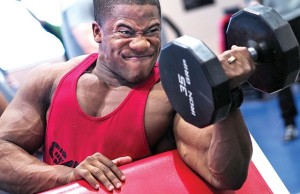 This gets very tricky in the sporting world, as many athletes may not view restrictive eating or unbalanced exercise habits as a symptom of an eating disorder. Many of these practices, sadly, are normalized, expected, and even desired.
This gets very tricky in the sporting world, as many athletes may not view restrictive eating or unbalanced exercise habits as a symptom of an eating disorder. Many of these practices, sadly, are normalized, expected, and even desired.
Many athletes report being praised for their strong work ethic and their dedication to the sport. This feels like, if they continue to do what they are doing with their disorder, they will continue to get better at their sport. They believe they’re doing what it takes to be a great athlete.
Thompson and Sherman did a great job of showing how similar the characteristics look between the “good athlete” and an athlete with anorexia.
When I talk with the athletes with whom I work, there is often a theme that their competitive nature and commitment to their sport is often manipulated by this pursuit to be perfect. Rather than achieving athletic excellence, they are lead down a path of unbalanced eating or fitness.
In my work, I am inspired to help these athletes find the balance between challenging themselves physically to make athletic progress and reach their goals without engaging in unhelpful habits like overdoing it entirely or tuning out their body cues.
I think it is important to make clear that athletes are not mentally weak. Often, they are actually mentally tougher than most people.
They simply need support tapping into their strengths, and they need the support of coaches, trainers, administrators, and parents guiding them in working toward their goals in a balanced and sustainable way.
With this support, they can feel empowered and be set up on a path to embrace and achieve their athletic and overall life goals.
Initiate Eating Disorder Treatment for Athletes
Beginning Eating Disorder Treatment for Athletes can be difficult. If a diagnosis of anorexia is suspected with an athlete, the bottom line is that sports participation should be limited or abstained from until clinically appropriate.
This does not mean the athlete must give up his or her sport, but, as coaches, trainers, administrators, and parents, we need to be proactive and, if the athlete is actively struggling with their eating disorder, we need to make the call.
Participation should cease until the nutrition and energy balance is re-established, medical risks and complications are evaluated, and, if an eating disorder assessment has been done, that there is a plan for follow-up care.
This gives time for the treatment team to assemble and key players, like a sports dietician, sports psychologist, physician, athletic trainer, coach, and strength and conditioning coach, to collaborate and create guidelines on how to reintegrate fitness training and competition.
An athlete with anorexia may have similar difficulties as an injured athlete so it is important to note that an athlete may feel they don’t have an injury because of their disorder or vice-versa.
Also, they likely fear losing playing time for their injury or eating disorder, or, even worse, permanent loss of their sport.
They may experience stress around the inability to compete and having limited interactions with their teammates, which can feel like a loss, as they spend so much time around their sport’s family.
The sport’s family can play an essential role as an individual’s support system, therefore, losing this can be very upsetting. If they have to take a step away from their sport because of their disorder individuals may also be concerned about losing their prior level of performance.
All of this makes it essential for us to give the support that we would give to any other athlete with an eating disorder and help them to rehabilitate from their metabolic injury as well.
Athletes, Anorexia & Health Risks
Athletes with anorexia face unique health risks. The signs and symptoms are unique to each individual, and they may vary over time.
These athletes may experience impaired concentration and judgment, increased risk of injury, and bone health concerns because of inadequate fueling or overtraining. They may also struggle with some mental health disturbances such as anxiety or depression. They may feel an overall sense of weakness and fatigue as well as muscle loss or soreness that often lingers longer than typically expected.
Athletes with anorexia may also start to notice a slower recovery time on post-physical exertion and may hit strength or conditioning plateaus or see a decline in overall sport’s performance. These symptoms can often result in a loss of passion for their sport.
It is important to note that athletic performance may not initially decline. As such, what you really need to keep in mind is that athletes with anorexia may be dangerously medically compromised even if they don’t display some of these signs and symptoms.
Their vital signs and labs may fall within normal ranges, and the athlete may continue to report feeling fine. They may even underplay their struggle, feeling confident that they can manage some of these difficulties on their own.
Since the mid-90’s, there has been a discussion of the female athlete triad which includes disordered eating, menstrual irregularities, and bone health concerns. In 2014, the International Olympic Committee came out with a consensus statement that helps explain the picture beyond the triad.
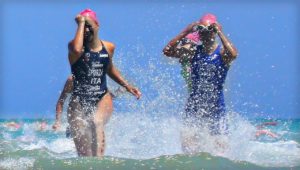 This is called “Relative Energy Deficiency in Sport,” and they think it’s beneficial to see that all of these other factors and body functions are affected by consistent, improper fueling and training as well as a lack of rest and recovery in males and females.
This is called “Relative Energy Deficiency in Sport,” and they think it’s beneficial to see that all of these other factors and body functions are affected by consistent, improper fueling and training as well as a lack of rest and recovery in males and females.
I think it is also important to note that female athletes may not view amenorrhea, or, the loss of their menstrual cycle, as abnormal or even a symptom of their eating disorder.
This often goes back to what has been normalized in their sport’s environment, as many of their teammates may also not have their menstrual cycle or have irregularities.
In fact, some athletes view losing their cycle as a marker of success that they’ve reached a desired level of training intensity.
The body image concerns and general life stressors that most individuals with anorexia may struggle with being involved in the sports world can include added pressures from coaches, parents, judges, and the media.
As we know, some sports have specific weight requirements while others may have uncomfortable or revealing uniforms that may intensify already present body image distress.
These pressure frequently can lead to increased body dissatisfaction, decreased athletic performance, injury, mood disturbances, and a loss of passion for their sport.
Detect, Refer, Collaborate
Talking to Athletes about Eating Disorders is tricky, but early detection and referral are essential for the opportunity for optimal eating disorder recovery.
Being able to spot some of the signs and symptoms of a struggling athlete can be beneficial and can minimize medical and emotional risks, reduce disruption to their athletic or academic career, and be imperative in helping the athlete regain their life overall.
My advice is to get to know your local eating disorder treatment professionals and start collaborating with them. When you suspect an athlete may have anorexia, you can only provide services within your scope of practice.
So, if you’re a strength and conditioning coach or trainer, like me, it wouldn’t be your role to offer nutrition advice or write out meal plans for the child or the athlete. It also wouldn’t be a role to act as the child or athletes therapist.
You would be the point-person for the treatment team members to come up with exercise prescriptions and creating that training progression for them.
Really, this is where collaboration comes in because there are so many skilled professionals out there. If everyone worked together and stayed in their respective lanes, could provide the best care to the athlete.
Beliefs
It is essential to examine what your attitudes and beliefs about health and wellness are as well as how you communicate these beliefs to your athletes and children.
Think about what messages you are sending to your children and athletes about food and weight because how you explore how these messages can really impact someone who is vulnerable to anorexia.
I hear, daily, that my athletes with anorexia have often taken well-meaning messages and used those messages to really fuel their eating disorder. Remember that messages such as, “the athlete is healthy,” or “he is performing well” are often pretty damaging.
In reality, athletes can perform well just by having a severe eating disorder even though that’s not sustainable. Eventually, the disorder begins to affect the athlete both physically and psychologically.
I also think messages such as “it makes you win” or that “losing weight will help improve your sport’s performance” can also be pretty harmful. Weight is just one factor of so many that can impact an athlete’s performance.
Other impactful aspects are genetics, mental focus, resilience, how you respond to mistakes, confidence, working harder, getting enough sleep, being strong, flexible, or balanced, and working on your VO2 max. These examples show it is not only about weight.
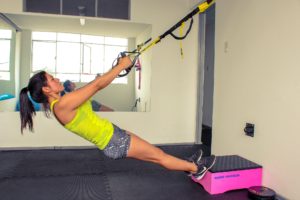 As a coach, trainer, administrator, or parent, explore what factors you are emphasizing to improving sport’s performance, as this can be beneficial.
As a coach, trainer, administrator, or parent, explore what factors you are emphasizing to improving sport’s performance, as this can be beneficial.
We also know that more is not always better with training, however, many athletes tend to hold onto that belief, so we don’t want to reinforce that.
What is Your Role?
It is essential to get to know the signs and symptoms of anorexia because you play an important role in your child and athlete’s life.
It is also essential to avoid making assumptions such as “we never have eating disorders on my team” or “I coach boys, and that is a girl’s issue.
Become well-informed so that you can help your athlete find care if, and when, they need it to support their short and long-term health.
Approaching the Athlete
When approaching athletes and speaking with athletes about eating disorders that you may suspect have anorexia or is struggling, first of all, it is crucial to take a non-judgmental approach in tone. You want to make the athlete feel safe and supported.
It is best to build, or already have, rapport with the athlete and approach him or her privately. Be careful to avoid making assumptions and be specific and effective with observed behaviors.
Simply show your concern, emphasize the athlete’s overall well-being, and make it clear that you care about their short and long-term health and that you’re there for them if they need someone to talk to or are struggling with unbalanced eating or exercise habits.
This conversation can be an excellent time to provide them or their parents with the contact information of some of the trusted eating disorder professionals in your area and/or maybe within your sport and academic organization if you have an eating disorder team within your program.
This conversation can be met with defensiveness and objections, and the child may minimize or discount your concerns. If this happens, remember that it is not personal. Simply follow-up after the conversation and continue to show your support for them.
Sometimes, athletes are more open to seeing a dietician as a first step to exploring a potential eating disorder than they would a therapist or a psychiatrist. As such, dietitians can be a pretty good resource to which to refer them.
Starting the Conversation
One way to begin this conversation could simply be to ask, “how are you feeling these days? I wanted to check in because it looks like you have been training pretty hard lately. I wanted to see if you’ve been adding in workouts beyond your prescribed training.”
If they say that they have, you may respond with “I wondered how your body and mind have been responding to this?” You may also simply begin with “how’s everything else going in your life?
I think another way to approach it can be by saying, “I’m really worried about you because I’ve noticed that you seem to have significantly less energy than you used to.”
It can be helpful to come from the perspective of checking in and observing the behavior or observing that you’ve seen a shift in their energy.
You may also say, “you’ve been experiencing a lot of injuries lately which makes me worried that something might be going on with your body. I think it would be best for us maybe consult with a physician to make sure that the training that we’re adding is really benefitting you rather than harming you.”
Communicating About Weight
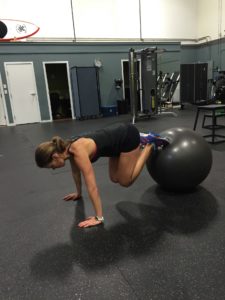 In talking about weight, you want to involve the sport dietitian, sports psychologist, physician, athletic trainer, and strength and conditioning coach.
In talking about weight, you want to involve the sport dietitian, sports psychologist, physician, athletic trainer, and strength and conditioning coach.
It will most often be the dietitian or physician discussing weight with the athlete, so it is essential for you to know your point-person when attempting to address weight with your athlete.
This is important because there is a true sensitivity needed when discussing weight and body composition with athletes who have anorexia.
Sometimes athletes may not want to know their weight or, if they are undergoing treatment, the treatment team may feel it is best to hold off on sharing their weight until clinically indicated.
You need to know who, on your treatment team or in your athletic environment, is the person who will be discussing weight with them in an appropriate manner.
Coaches & Trainers
I may be biased, as I am one, but coaches and trainers play a vital role in the life of the athlete, and their words and actions have a lasting meaning. As such, it is your responsibility, when speaking to athletes with disordered eating behaviors, to create a safe and supportive training environment for your athletes.
Encourage proper fueling and trading habits as well as having balance outside of the sport such as having a life outside of competition. Additionally, if you see another coach or trainer saying something or doing something that can be potentially damaging, speak out in a kind and supportive way.
Accountability is essential and, sometimes, we may not even realize that some of the things that we say or do have that lasting meaning in our athletes’ lives.
There are not nearly enough resources for coaches, who need information on how to manage and care for athletes with eating disorders. This field is expanding, and there are amazing clinicians and researchers that are including trainers and coaches as part of their eating disorder treatment team.
It is my personal mission to make sure that coaches and trainers feel well equipped to deter, refer, and manage the care of an athlete who might have an eating disorder or who may have undergone treatment for an eating disorder and are being transitioned back into their care.
Administrators
This role is crucial because you make the rules.
It is imperative to create policies that discourage unhealthy weight loss practices and encourage proper fueling and overall health for the athlete.
A person in the position of administrator could work to create relationships with eating disorder professionals in their community and utilize them to collaborate in creating policies around detection, referral, and management of athletes with eating disorders.
Administrators have to learn how to start holding and modifying training and competitions for athletes. Athletes struggling will sometimes train continuously or continue to compete despite their struggle.
An administrator can be instrumental in holding that line and create policy around how to keep that line and modify training. Anything you can do systematically to communicate consistent messages and expectations to athletes and staff will be very helpful when working with individuals with anorexia.
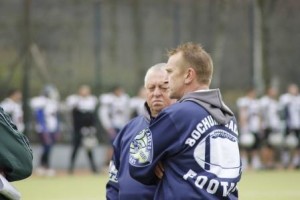 Education is also essential, educating athletes and parents about healthy and balanced fitness and eating habits are really important.
Education is also essential, educating athletes and parents about healthy and balanced fitness and eating habits are really important.
This can often be done during pre-season, at assemblies or the start of the season team meetings, for example. This can also be done at any point during the season.
It would also be wonderful to ask one of the eating disorder professionals in your community, or even us at the Victory Program, to come in and talk about these important issues.
No matter what, remember that administrators have the power to educate and education is key.
Parents
Parents, naturally, play such a critical support role for their child or athlete. You are likely to see them more than anyone and are more likely to notice signs or symptoms.
Do your own research on what eating disorder resources are available in your area and advocate for appropriate care for your son or daughter if you find they are struggling.
I think it is important to add that you need to find support for yourself. Many eating disorder professionals will offer resources or support groups for parents. Make sure that you are giving yourself the self-care that is needed.
Furthermore, don’t forget you are a part of the treatment team and play a key role in supporting your child if they need treatment. Hold the line with unified treatment guidelines.
Do’s, Don’ts, & Communication Tips for Coaches & Parents of Athletes With Eating Disorders
DON’T Body Shame!
Fitness training shouldn’t be a punishment. For coaches and trainers, it is important not to post athlete’s weight, body composition, or completed training volumes for the rest of the team to see, whether it is on a bulletin board or shared on a Google Doc.
Also, it is best not to set weight-related goals. Consider setting more empowering goals such as “this year I will improve my VO2 max so I can be faster on the field” or “I want to get better at my penalty kick.”
Get away from weight-related goals and get pretty specific about other goals that can help performance.
DON’T Push Diets!
Food does not need to be earned through sport’s training.
We need to fuel our bodies for training. So, if you are a coach, trainer, administrator, or parent, it is crucial that you are not pushing diets but, instead, are collaborating with a dietician who can have those conversations with the athlete.
DON’T Work Out of Your Scope of Practice
Instead, place emphasis on collaborating with some of the other treatment team members.
DON’T Expect Perfection
Teach your child or athlete to strive for excellence and do their very best and help them push out of their comfort zone to accomplish things they didn’t think that they could, but it is important not to expect perfection.
This is especially true for anorexic athletes, who tend to hold themselves to such a high standard anyway. Make sure your child or athlete knows that it is absolutely normal, and very human, to make mistakes. Help them learn how to navigate those moments where mistakes happen.
DO Encourage Fueling, Hydration, & Rest
This is pretty, and these habits will follow your children throughout their lives.
DO Be a Role Model
Remember to maintain your own healthy and balanced relationship with food and fitness.
DO Be Aware
A huge thing to be aware of are the risks associated with allowing an athlete to continue to train and compete in a state of energy deficiency. Remember that high performance in sports does not always equal good health.
Performance may not initially decline when one is struggling. As such, the athlete may not even think anything is wrong because their performance isn’t declining.
DO Create a Supportive FItness Environment
A huge part of this is minimizing comparing, judging, and not even engaging in fat talk.
Harmful Messages
Some harmful messages that some of my athletes have shared hearing may include coaches or trainers commenting on weight shape and appearance, comparing athlete’s bodies to teammates during practice.
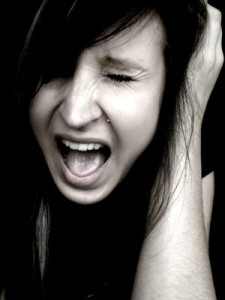 I have also heard that coaches have before-and-after weight loss competitions with their team, and this is very harmful. Athletes also report being touched without being given permission.
I have also heard that coaches have before-and-after weight loss competitions with their team, and this is very harmful. Athletes also report being touched without being given permission.
Giving mixed messages such as “you look so fit, keep up the good work” but then saying, “you’ve lost too much weight, what’s wrong with you.” Additionally, saying things such as “you look too thin” or “you could be so much faster if you just drop a few pounds.”
Praising an athlete for clocking extra hours at the gym can be pretty harmful.
Finally, praising athletes for rigid or obsessive habits.
Helpful Messages
Athletes report it was helpful for them when their coaches made them feel safe and supported.
Coaches asking if athletes are okay in a friendly and approachable manner was also appreciated.
Coaches approaching athletes at all by saying, “we’re concerned about you,” “we want to see how you’re doing mentally” or asking if and how they can help.
Some athletes reported they were approached with “it seems like you’ve hit a plateau, why don’t you set up a session with a dietician just to see how we can get the most out of your training.”
It is also helpful to announce reminders to the whole team or group such as “remember to hydrate,” “listen to your body,” “it is okay to rest if you’re tired,” or “tune into those body cues.”
Emphasize the importance of rest and recovery days, make it more normalized and not something that is seen as lazy.
One athlete stated their coach said, “you don’t seem yourself lately, are you okay?
A great story I heard was a comment made after having one of those really difficult discussions with her coaches and administrators approaching her about potentially struggling with an eating disorder. The athlete said, “I was in denial.
It was hard to hear when someone confronts you with your own struggles I was defensive and maybe a little mean. It was helpful when I had coaches that were consistent with her messages and continued to hold the boundary that my health means more than my sport and the awkward conversation.”
It is also really powerful to remind athlete’s that “I’m not attached to an outcome with your sport’s performance or your appearance, I just want you to be okay as a whole person.”
Source:
Virtual Presentation by Amanda Schlitzer Tierney, MS, CSCS in the May 17, 2018, Eating Disorder Hope Online Conference II: Anorexia Hope & Healing in 2018.
Please view the press release Here.
Author:
 Amanda Schlitzer Tierney, MS, CSCS is a NSCA Certified Strength and Conditioning Specialist and holds her Master’s degree in Sport and Exercise Psychology from Lock Haven University and her Bachelor’s degree in Psychology from Chestnut Hill College. Amanda is currently the Co-Chair of the Association for Applied Sports Psychology: Eating Disorder Special Interest Group. Amanda has been working with athletes and non-athletes with eating disorders since 2006. Over the years, Amanda gained a wide-range of knowledge for this specialized population and found her true passion: helping individuals incorporate balanced exercise into the recovery environment. Learn More About Amanda Schlitzer Tierney.
Amanda Schlitzer Tierney, MS, CSCS is a NSCA Certified Strength and Conditioning Specialist and holds her Master’s degree in Sport and Exercise Psychology from Lock Haven University and her Bachelor’s degree in Psychology from Chestnut Hill College. Amanda is currently the Co-Chair of the Association for Applied Sports Psychology: Eating Disorder Special Interest Group. Amanda has been working with athletes and non-athletes with eating disorders since 2006. Over the years, Amanda gained a wide-range of knowledge for this specialized population and found her true passion: helping individuals incorporate balanced exercise into the recovery environment. Learn More About Amanda Schlitzer Tierney.
 About the Transcript Editor: Margot Rittenhouse is a therapist who is passionate about providing mental health support to all in need and has worked with clients with substance abuse issues, eating disorders, domestic violence victims, and offenders, and severely mentally ill youth.
About the Transcript Editor: Margot Rittenhouse is a therapist who is passionate about providing mental health support to all in need and has worked with clients with substance abuse issues, eating disorders, domestic violence victims, and offenders, and severely mentally ill youth.
As a freelance writer for Eating Disorder and Addiction Hope and a mentor with MentorConnect, Margot is a passionate eating disorder advocate, committed to de-stigmatizing these illnesses while showing support for those struggling through mentoring, writing, and volunteering. Margot has a Master’s of Science in Clinical Mental Health Counseling from Johns Hopkins University.
The opinions and views of our guest contributors are shared to provide a broad perspective of eating disorders. These are not necessarily the views of Eating Disorder Hope, but an effort to offer a discussion of various issues by different concerned individuals.
We at Eating Disorder Hope understand that eating disorders result from a combination of environmental and genetic factors. If you or a loved one are suffering from an eating disorder, please know that there is hope for you, and seek immediate professional help.
Published on August 13, 2018.
Reviewed & Approved on August 14, 2018, by Jacquelyn Ekern MS, LPC
Published on EatingDisorderHope.com

The EatingDisorderHope.com editorial team comprises experienced writers, editors, and medical reviewers specializing in eating disorders, treatment, and mental and behavioral health.

